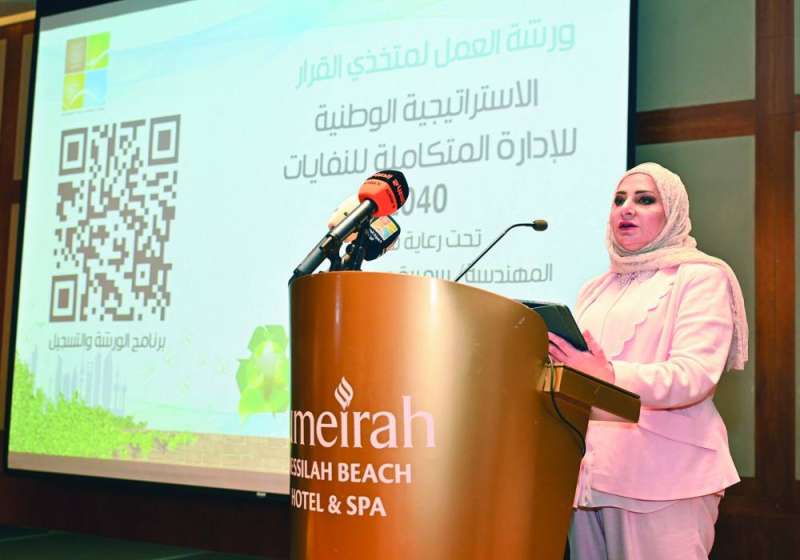29/05/2024
29/05/2024

KUWAIT CITY, May 29: The Environment Public Authority of Kuwait has finalized the draft national strategy for integrated waste management in the State of Kuwait by 2040. Engineer Samira Al-Kandari, the acting Director General of the Authority, affirmed that the strategy was formulated by Article 34 of the Environmental Protection Law No. 42 of 2014 and its amendments, aligning with Kuwait Vision 2035.
Al-Kandari made these remarks during a workshop organized by the Authority to review the draft strategy with decision-makers. The strategy, developed over four years in collaboration with experts from the German Fraunhofer Institute for Environmental, Safety, and Energy Technology, aims to define strategic goals and policies for waste management until 2040.
The comprehensive survey and field measurements conducted as part of the project provided insights into current waste management practices and waste streams in Kuwait. Al-Kandari emphasized that the strategy incorporates social, economic, legal, and financial aspects of waste management.
Key highlights of the strategy include five goals and 28 objectives aimed at gradually improving waste management processes. These objectives focus on reducing the negative impacts of waste on health and the environment, transitioning to a circular economy, amending legal frameworks, enhancing competencies in waste management, and ensuring reliable data for monitoring and decision-making.
Specific objectives include creating safe working conditions, promoting waste reduction and sorting, amending legislative frameworks, enhancing training programs, raising public awareness, and implementing digital transformation initiatives.
The strategy underscores Kuwait's commitment to sustainable waste management practices and lays out a roadmap for government agencies to collaborate effectively in achieving waste management goals.
The draft strategy signals Kuwait's proactive approach to addressing environmental challenges and underscores its commitment to sustainable development. As the nation looks ahead to 2040, the integrated waste management strategy is poised to play a crucial role in safeguarding public health and preserving the environment for future generations.


